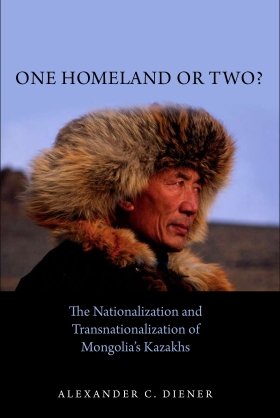One Homeland or Two? The Nationalization and Transnationalization of Mongolia's Kazakhs

-
How do ethnicity and notions of a traditional homeland interact in shaping a community’s values and images? As Alexander C. Diener shows in One Homeland or Two?, the answer, even in a diaspora, is far from a simple harking back to the “old country.”
Diener’s research focuses on the complex case of the Kazakhs of Mongolia. Pushed out of the Soviet Union, then courted by the leaders of a new post-Soviet nation—the first-ever country named after them—and facing a newly urbanized, somewhat Russianized, and culturally Sovietized homeland, Mongolia’s Kazakhs have had to figure out whether they can be better Kazakhs in Kazakhstan or in Mongolia, and then how much they identify as Kazakhstanis and how much as Mongolians. Diener brings a battery of social science methodology to bear on this, especially intensive fieldwork in both Kazakhstan and Mongolia. In the end, he illustrates the complexity and dynamism of this multigenerational, diasporic community, while demonstrating that the link between identity and place, despite the effects of globalization, is far from eroding.
Alexander C. Diener is associate professor of geography in the Social Science Division of Pepperdine University.
Author
 Alexander DienerFormer Title VIII Short-Term Scholar;
Alexander DienerFormer Title VIII Short-Term Scholar;
Assistant Professor, Department of Geography, University of Kansas



